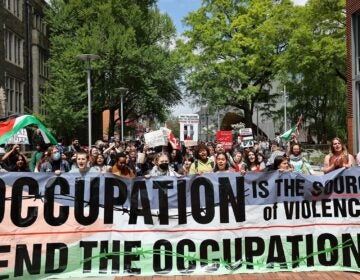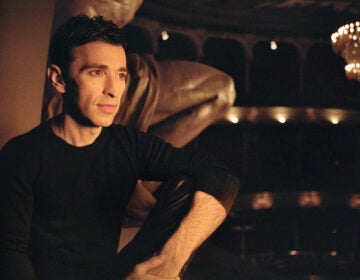Roxborough’s Rabbi Holtzman explores the deeper meaning behind Hanukkah
For Rabbi Linda Holtzman, the story of Hanukkah is often too streamlined.
Typically, the narrative behind the Jewish holiday, which starts tonight, is boiled down to the re-dedication of The Holy Temple in Jerusalem around 167 BCE. And more specifically, to a small canister of oil that miraculously kept a sacred candelabrum, called a Menorah, lit for eight days instead of one.
“That’s the part of the story we often end up focusing on,” said Holtzman, who heads Mishkan Shalom synagogue, a Reconstructionist congregation in Roxborough.
It’s the tale that explains why the holiday is often referred to as the Festival of Lights and why it traditionally includes eating foods cooked in oil, such as potato pancakes and jelly doughnuts.
But there’s another, perhaps more significant part of the same story, said Holtzman.
At the time, Israel was part of the Syrian-Greek Empire, which was not open to its citizens operating outside of Hellenistic norms, including those who didn’t worship idols.
Holtzman said there were plenty of Jews that obliged, not wanting to be outcasts within an empire so rich with cultural benefits. One faction, however, led by a man known as Judah Maccabee, wasn’t willing to assimilate.
“There was really almost a civil war between the Jewish groups,” said Holtzman.
Ultimately, Maccabee and others waged a war against the empire, including fellow Jews, and took control of the region. The famed temple ceremony came at the conclusion of that war.
Holtzman said the episode brings up important questions about the religion.
“The understanding of who we are as a community, what is our identity, how much do we assimilate into the current culture – all of that feels more interesting to me and more like what I think the Jewish community could take from Hanukkah,” she said.
And it’s one in which Holtzman can find the most modern-day ties. She used the Occupy Philadelphia movement as an example.
“It’s saying look at the system, look at the injustice, shine a light on it,” said Holtzman. “It feels like it comes right out of the history and out of the real meaning of the holiday.”
WHYY is your source for fact-based, in-depth journalism and information. As a nonprofit organization, we rely on financial support from readers like you. Please give today.




